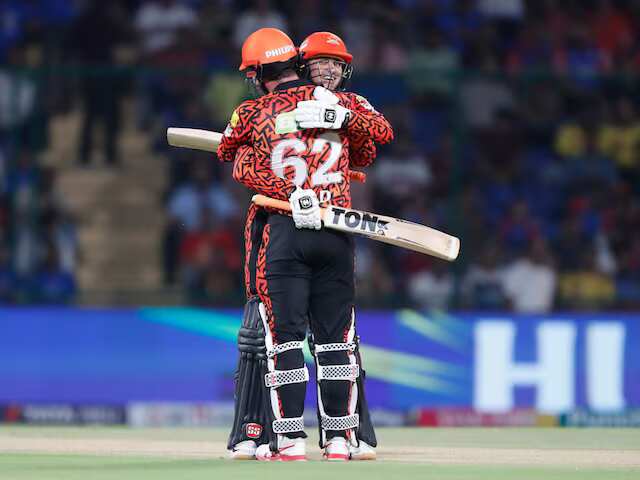Jaitley said the directly elected House has a popular mandate and it represents the will of people
Irked over the stalling of GST bill in the Rajya Sabha, Finance Minister Arun Jaitley on Tuesday once again raked up the role of the upper house saying time has come to debate whether an 'indirectly elected' house can hold reforms passed by the 'directly-elected' Lok Sabha.
Accusing the Congress of delaying reforms with its 'obstructionism' in Parliament, he also took a dig at 'families' controlling political parties saying less number of businesses are now family-controlled with start-up revolution.
Against the backdrop of the failure of Rajya Sabha to pass the much-delayed Goods and Services Tax (GST) during the just-concluded monsoon session, Jaitley said, "India is getting increasingly polarised between those who want to grow and those who want to obstruct.
"We have seen a very disappointing but a very educative Parliament session coming to an end. One needs to understand the politics of reform to assess the growth story." The Finance Minister wondered "till what extent can the indirectly-elected House hold reform proposals passed by the directly elected house which represents will of the people? "Time has come to debate on this crucial question, to find out a conventional answer to this problem." Jaitley said, "I think it's about time that we set up some good conventions in order to decide as the British did, as to how do you get legislative sanction when it is required for a reform.
"My own answer to this has been that it is the strength of public opinion, safeguards like joint-sessions and Money Bills, which provide for legislation part of the Answer. "For Constitution amendment, perhaps there is no such answer. Except, as we grow, we will see on April 1, 2016, the numbers somewhat changing even in the Upper House because that is an evolving process itself." Hitting out at Congress leaders, Jaitley said, "You can't have individual ambitions obstruct a popular mandate.
"Less and less businesses are controlled by families due to start-ups, but more political parties are family controlled. Families that control political parties believe that they have divine right to be in power." "Such tendencies lead to a right to obstruct. It is time we set up conventions as the British did to ensure we get legislative sanctions," he said.
Apparently making a case for further reforms in terms of opening up more sectors for foreign investments, he said, "Except for a few rare sectors, India must accept that it has to completely open up." Speaking on a range of macroeconomic issues, Jaitley said that the inflation was trending down and hoped that the central bank would take note of this in terms of their view on interest rates.
He said that monsoon has been good, except for two patches in the country, and harvest was expected to be good. Accelerating growth to 10 per cent and sustaining it can help alleviate poverty.
On GST, Jaitley said even in Rajya Sabha, the mandate was with the Government as it had regional parties supporting the bill. Stating that it is important to get Indian society freed of all governmental discretions, he said, "Parliamentary democracy is an asset and should not become into a forum to obstruct." To tackle such tendencies come up in politics, Jaitley said, "I think it's about time that we set up some good conventions in order to decide as the British did, as to how do you get legislative sanction when it is required for a reform.
"My own answer to this has been that it is the strength of public opinion, safeguards such as joint-sessions, safeguards such as Money Bills, which provide for legislation part of the Answer. "For Constitution amendment perhaps there was no such answer. Except, as we grow, we see on April 1, 2016, the numbers somewhat changing even in the Upper House, because that is an evolving process itself." Jaitley said the government inherited a challenging situation with various sectors passing through difficult times.
"Our challenge is not a scarcity in commodities, but in managing the surpluses," he said while acknowledging that fall in crude prices has been good for the country. "We need to have fast track methodology of dealing with disputes." Public sector banks need to be run efficiently, Jaitley said while adding that slow credit offtake is a challenge. He said that the banking sector situation was challenging but not alarming. The Finance Minister also said that the private sector wants the government to step in when the going gets tough, while necessary steps were being taken such as setting up of India Infrastructure Fund.
Questioning Congress' stand on GST, Jaitley said there is "a political party which envisaged a GST in 2006, which introduced it in 2011 and in 2014 every state government supported it and in 2015 it decided to come out with some make objections." "And that is what compels me to feel that politics is increasingly getting polarised between India which wants to grow and a minuscule section of the country confined to small strength in Parliament which actually wants to obstruct.
"When faced with this challenge, I have been trying to read and understand how other countries in the world face this challenging situation... You have the House of Commons which have the mandate from people and you have the Upper House ... and it remains a House which is nominated," he said. Jaitley said the directly elected House has a popular mandate and it represents the will of people.
"I can try and understand the checks and balances of an indirectly-elected House. An indirectly elected House can confer its wisdom once or twice. "But if we see the characters of India's politics, where the Upper House as a council of states.... and the doctrine was ordinarily you should not obstruct the decision of directly-elected House. "Even if you did (obstruct), on a second or third reading you must accept the decision of the directly-elected house.
There is a manifesto doctrine. The Lower House is elected on the basis of manifesto and once there is a popular sanction behind the manifesto, on the second and third reading, the Upper House must accept it." "... And therefore time has come for us to find out the Constitutional or as a matter of precedent a conventional answer to this problem...
"One answer lies in a question, that if this stalemate or traffic-jam remains, a lot of ordinary legislations will then have to be send as Money Bills because society which are alive will have to find an answer as to how to grow. You can't have individual ambitions, trying to obstruct a popular mandate." Jaitley also said that it was "sad but true" that a lot of political parties in our country are controlled by families.
"And families which control political parties and which have tasted political power believe that they have a divine right to be in power. Ultimately if you go back to the darkest phase of Indian history -- the Emergency -- why did India lose it's eloquecy during the period. "If the then Prime Minister Mrs (Indira) Gandhi had resigned, another member of her party would have taken over. Opposition did not have a majority." Jaitley said even in the "recent politics of obstructionism", it was loss of power and the feeling that they had a divine right to rule that led them to obstruct.
![submenu-img]() US imposes sanctions on Chinese, Belarus firms for providing ballistic missile tech to Pakistan
US imposes sanctions on Chinese, Belarus firms for providing ballistic missile tech to Pakistan![submenu-img]() 'Don't have any comment': White House mum on reports of Israeli strikes in Iran
'Don't have any comment': White House mum on reports of Israeli strikes in Iran![submenu-img]() Yes Bank co-founder Rana Kapoor gets bail after four years in bank fraud case
Yes Bank co-founder Rana Kapoor gets bail after four years in bank fraud case![submenu-img]() Barmer Lok Sabha Polls 2024: Check key candidates, date of voting and other important details
Barmer Lok Sabha Polls 2024: Check key candidates, date of voting and other important details![submenu-img]() This star once lived in garage, earned Rs 51 as first salary; now charges Rs 5 crore per film, is worth Rs 335 crore
This star once lived in garage, earned Rs 51 as first salary; now charges Rs 5 crore per film, is worth Rs 335 crore![submenu-img]() DNA Verified: Is CAA an anti-Muslim law? Centre terms news report as 'misleading'
DNA Verified: Is CAA an anti-Muslim law? Centre terms news report as 'misleading'![submenu-img]() DNA Verified: Lok Sabha Elections 2024 to be held on April 19? Know truth behind viral message
DNA Verified: Lok Sabha Elections 2024 to be held on April 19? Know truth behind viral message![submenu-img]() DNA Verified: Modi govt giving students free laptops under 'One Student One Laptop' scheme? Know truth here
DNA Verified: Modi govt giving students free laptops under 'One Student One Laptop' scheme? Know truth here![submenu-img]() DNA Verified: Shah Rukh Khan denies reports of his role in release of India's naval officers from Qatar
DNA Verified: Shah Rukh Khan denies reports of his role in release of India's naval officers from Qatar![submenu-img]() DNA Verified: Is govt providing Rs 1.6 lakh benefit to girls under PM Ladli Laxmi Yojana? Know truth
DNA Verified: Is govt providing Rs 1.6 lakh benefit to girls under PM Ladli Laxmi Yojana? Know truth![submenu-img]() Remember Ali Haji? Aamir Khan, Kajol's son in Fanaa, who is now director, writer; here's how charming he looks now
Remember Ali Haji? Aamir Khan, Kajol's son in Fanaa, who is now director, writer; here's how charming he looks now![submenu-img]() Remember Sana Saeed? SRK's daughter in Kuch Kuch Hota Hai, here's how she looks after 26 years, she's dating..
Remember Sana Saeed? SRK's daughter in Kuch Kuch Hota Hai, here's how she looks after 26 years, she's dating..![submenu-img]() In pics: Rajinikanth, Kamal Haasan, Mani Ratnam, Suriya attend S Shankar's daughter Aishwarya's star-studded wedding
In pics: Rajinikanth, Kamal Haasan, Mani Ratnam, Suriya attend S Shankar's daughter Aishwarya's star-studded wedding![submenu-img]() In pics: Sanya Malhotra attends opening of school for neurodivergent individuals to mark World Autism Month
In pics: Sanya Malhotra attends opening of school for neurodivergent individuals to mark World Autism Month![submenu-img]() Remember Jibraan Khan? Shah Rukh's son in Kabhi Khushi Kabhie Gham, who worked in Brahmastra; here’s how he looks now
Remember Jibraan Khan? Shah Rukh's son in Kabhi Khushi Kabhie Gham, who worked in Brahmastra; here’s how he looks now![submenu-img]() DNA Explainer: What is cloud seeding which is blamed for wreaking havoc in Dubai?
DNA Explainer: What is cloud seeding which is blamed for wreaking havoc in Dubai?![submenu-img]() DNA Explainer: What is Israel's Arrow-3 defence system used to intercept Iran's missile attack?
DNA Explainer: What is Israel's Arrow-3 defence system used to intercept Iran's missile attack?![submenu-img]() DNA Explainer: How Iranian projectiles failed to breach iron-clad Israeli air defence
DNA Explainer: How Iranian projectiles failed to breach iron-clad Israeli air defence![submenu-img]() DNA Explainer: What is India's stand amid Iran-Israel conflict?
DNA Explainer: What is India's stand amid Iran-Israel conflict?![submenu-img]() DNA Explainer: Why Iran attacked Israel with hundreds of drones, missiles
DNA Explainer: Why Iran attacked Israel with hundreds of drones, missiles![submenu-img]() This star once lived in garage, earned Rs 51 as first salary; now charges Rs 5 crore per film, is worth Rs 335 crore
This star once lived in garage, earned Rs 51 as first salary; now charges Rs 5 crore per film, is worth Rs 335 crore![submenu-img]() Meet actress, who worked as cook for free food, mopped floors, one Instagram post changed her life, is now worth…
Meet actress, who worked as cook for free food, mopped floors, one Instagram post changed her life, is now worth… ![submenu-img]() UP man arrested for booking cab from Salman Khan's house under Lawrence Bishnoi's name
UP man arrested for booking cab from Salman Khan's house under Lawrence Bishnoi's name ![submenu-img]() 'Justice milega': Ankita Lokhande talks about Sushant Singh Rajput, reveals she's still connected with his family
'Justice milega': Ankita Lokhande talks about Sushant Singh Rajput, reveals she's still connected with his family![submenu-img]() Rajkummar Rao reacts to plastic surgery rumours, admits he got fillers: 'If something gives me confidence...'
Rajkummar Rao reacts to plastic surgery rumours, admits he got fillers: 'If something gives me confidence...'![submenu-img]() IPL 2024: KL Rahul, Quinton de Kock star in Lucknow Super Giants' dominating 8-wicket win over Chennai Super Kings
IPL 2024: KL Rahul, Quinton de Kock star in Lucknow Super Giants' dominating 8-wicket win over Chennai Super Kings![submenu-img]() DC vs SRH, IPL 2024: Predicted playing XI, live streaming details, weather and pitch report
DC vs SRH, IPL 2024: Predicted playing XI, live streaming details, weather and pitch report![submenu-img]() Watch: Virat Kohli's cheeky 'your wife' remark to Dinesh Karthik leaves RCB teammates in splits
Watch: Virat Kohli's cheeky 'your wife' remark to Dinesh Karthik leaves RCB teammates in splits ![submenu-img]() DC vs SRH IPL 2024 Dream11 prediction: Fantasy cricket tips for Delhi Capitals vs Sunrisers Hyderabad
DC vs SRH IPL 2024 Dream11 prediction: Fantasy cricket tips for Delhi Capitals vs Sunrisers Hyderabad![submenu-img]() 'Kohli said it's not an option, just...': KL Rahul recalls his IPL debut for RCB in 2013
'Kohli said it's not an option, just...': KL Rahul recalls his IPL debut for RCB in 2013![submenu-img]() Canada's biggest heist: Two Indian-origin men among six arrested for Rs 1300 crore cash, gold theft
Canada's biggest heist: Two Indian-origin men among six arrested for Rs 1300 crore cash, gold theft![submenu-img]() Donuru Ananya Reddy, who secured AIR 3 in UPSC CSE 2023, calls Virat Kohli her inspiration, says…
Donuru Ananya Reddy, who secured AIR 3 in UPSC CSE 2023, calls Virat Kohli her inspiration, says…![submenu-img]() Nestle getting children addicted to sugar, Cerelac contains 3 grams of sugar per serving in India but not in…
Nestle getting children addicted to sugar, Cerelac contains 3 grams of sugar per serving in India but not in…![submenu-img]() Viral video: Woman enters crowded Delhi bus wearing bikini, makes obscene gesture at passenger, watch
Viral video: Woman enters crowded Delhi bus wearing bikini, makes obscene gesture at passenger, watch![submenu-img]() This Swiss Alps wedding outshine Mukesh Ambani's son Anant Ambani's Jamnagar pre-wedding gala
This Swiss Alps wedding outshine Mukesh Ambani's son Anant Ambani's Jamnagar pre-wedding gala








































)




)
)
)
)
)
)